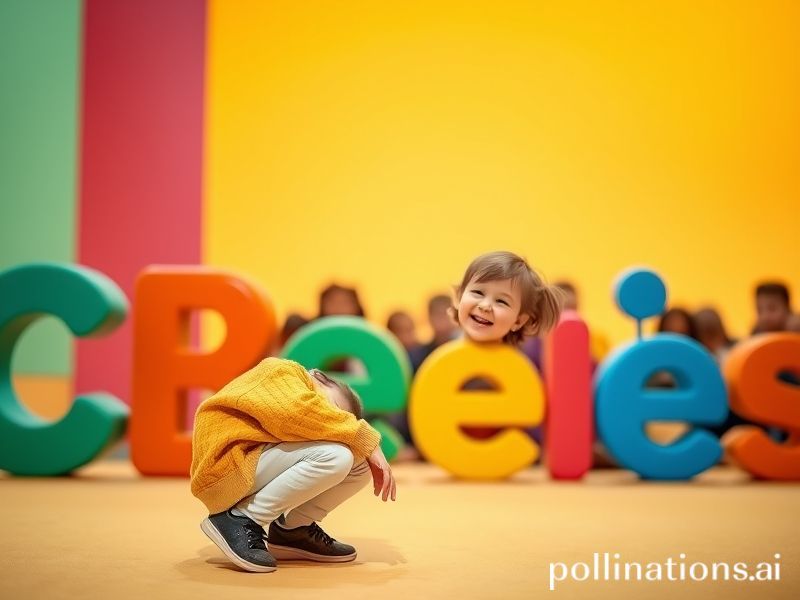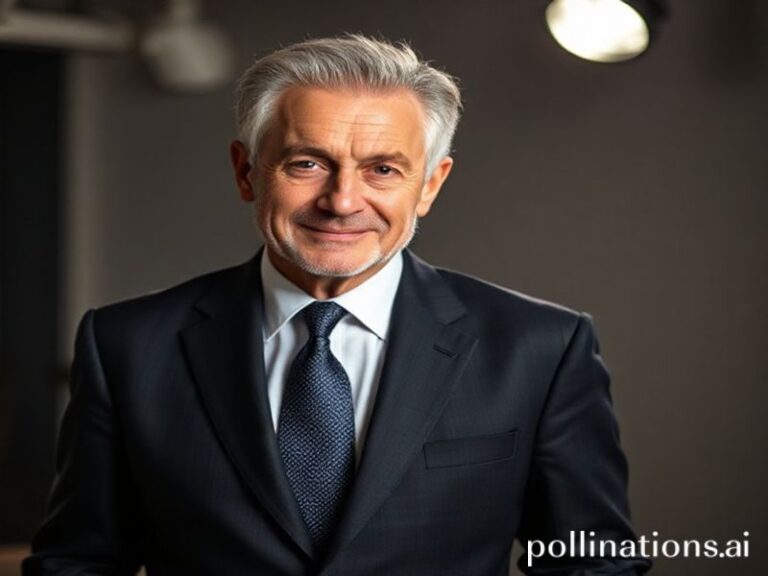CBeebies: How Britain’s Toddler TV Channel Quietly Colonized the World
CBeebies: The Soft-Power Kindergarten That Conquered the Planet
By Dave’s International Affairs Desk
In the great geopolitical nursery rhyme, CBeebies is the pastel-colored Trojan horse you never saw coming. Produced by the BBC and beamed into 100-plus territories from Lagos to Lapland, the channel is technically aimed at humans who still think “property rights” means “this banana is mine.” Yet its influence now rivals any trade corridor or sanctions package—proof that you can indeed rule the world if you do it before naptime.
Consider the sheer territorial reach: from the Middle Eastern feed that censors Peppa Pig’s snout for “porcine sensitivity” to the Latin American dub where Bing Bunny acquires an Argentine accent and, arguably, a cocaine habit. Each regional cut is a masterclass in soft-power origami—fold the content just right, and suddenly British vowels colonize a toddler’s brain faster than the East India Company ever managed.
The economics are deliciously cynical. CBeebies is “commercial-free,” which sounds wholesome until you realize the merchandising arm is busier than a Beijing iPhone factory. A single episode of Hey Duggee spawns enough plushies, lunchboxes, and gluten-free paw-print biscuits to bankroll a small Balkan republic. Norway’s oil fund? That’s cute. CBeebies sells existential dread in felt form: parents worldwide purchase plastic Hey Duggee badges so their children can literally wear obedience to a fictional squirrel. If the UN issued sanctions this effective, Putin would be rationing Octonauts underwear in the Kremlin gift shop.
But the real payload is cultural. Watch a CBeebies bedtime story and you’ll notice the rotating presenters: a Maltese sign-language interpreter here, a Ghanaian drag queen there, all reading Mog the Forgetful Cat with the reverence normally reserved for dead prophets. It’s inclusivity as imperial strategy—no gunboats required, just gentle ukulele chords. The message: Britain may have left your ancestors to starve, but look, we’re really sorry and here’s a soothing story about a depressed tabby.
Meanwhile, rival superpowers scramble to catch up. China’s CCTV Children pumps out “Baby Bus,” a saccharine panda that teaches calculus to embryos; Russia counters with “Masha and the Bear,” essentially a propaganda reel showing that if you torment a large ursine creature long enough, it will eventually feed you. Yet neither has cracked the code of parental Stockholm Syndrome quite like CBeebies. The channel’s lullaby loop—twelve hours of slow-motion galaxies and whispered affirmations—has become the de-facto opium of the exhausted masses. In refugee camps from Lesbos to Tijuana, solar-powered projectors flicker with Mr Tumble signing “I love you” in Makaton while real-world borders slam shut. Irony, like sleep deprivation, is universal.
Of course, utopia has glitches. Singapore banned “Topsy and Tim” for depicting children walking to school unsupervised—an act classified locally as “terrorism-adjacent.” Saudi Arabia pixelated an episode of Swashbuckle because the pirate captain’s shorts revealed a kneecap, presumably triggering the apocalypse. And in the United States, CBeebies is only available as an add-on subscription, because nothing says “land of the free” like paywalling empathy at $5.99 a month.
Yet the juggernaut rolls on. Last year, the channel launched “CBeebies Radio” on smart speakers, meaning Alexa can now parent your child in received pronunciation while you doom-scroll Twitter in the next room. By 2025 analysts predict an AI host—probably a holographic Mr Bloom—who will read bedtime stories customized to each child’s serotonin levels, harvested via wearable broccoli. The endgame? A generation that salutes the Union Jack every time they hear a xylophone.
So the next time you dismiss CBeebies as harmless preschool fodder, remember: empires used to be built on gunpowder and gold. Now they rely on knitted bumblebees and the concept of sharing. In this century’s battle for hearts and minds, the most potent weapon isn’t a drone strike—it’s a bedtime story about a depressed cloud who learns to feel. And you thought the Cold War was scary.







